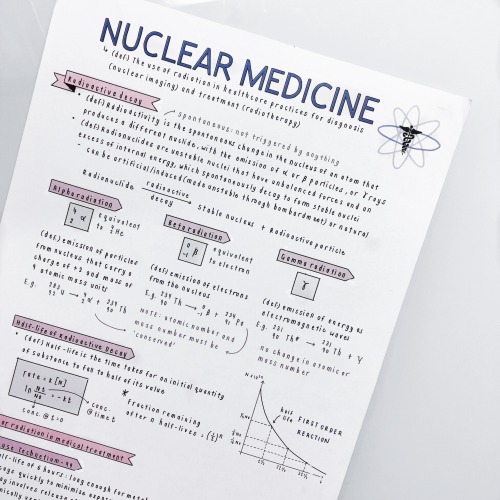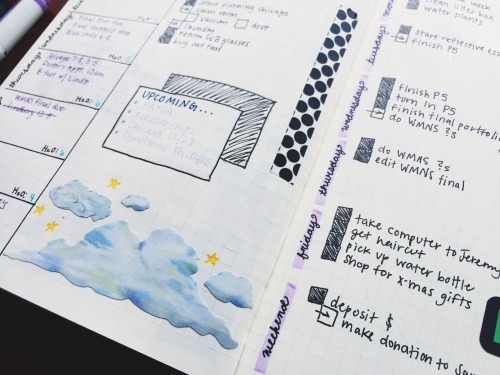a study blog for collected references, advice, and inspiration
267 posts
Latest Posts by swirlspill-study - Page 7
Don’t Let Calculus D(e)rive You Mad
I was always one of those people who thought some people were naturally good at math and if I wasn’t one of those people then there was nothing I could do about it. I thought I wasn’t “a math person” and would use that description as an excuse. Is math one of my weaker subjects? Sure but that’s mostly because I let years of bad habits get in the way of my current work. This caught up to me in my first semester of calculus (calc I) at university, where calculus was my worst class. Here’s the thing: if you’re not “a math person” make yourself one. In my second semester of calculus (calc II) I improved my mark by an entire letter grade (something I never thought possible). How? Through hard work and by understanding that I would have to work harder than some people because of my past study habits.
Know your pre-calculus well! You will struggle so much if you forget the basics. My prof said not having a good grasp of the basics is the number one reason why students will struggle with calculus. Invest time before/at the beginning of the semester to really review the stuff you learned in high school. (Khan Academy is the best way to review, in my opinion. They have challenge questions you can do for each section. Try a couple of questions for each section. If you can’t answer the question easily, watch the accompanying videos for that section first. Do this for sections you forget or know you struggle with.) Be confident in your basic mental math too, especially under pressure. I wasn’t allowed a calculator on any of my midterms or finals for calc and you don’t want to waste time on easy math that you should know lightning fast anyway.
Attend every lecture, especially if you’re even slightly confused. If you’re behind, try not to get even more behind by skipping class (obviously use your own judgement, but don’t skip unless it’s totally necessary). Don’t sit near the back of the class if you know you won’t pay attention.
Don’t just sit there and copy down notes. Be attentive in class and follow along with examples the best you can. If you get lost at a certain step in a problem put a star beside it. After class, study and attempt the problem on your own. If you still don’t understand, go to a TA or prof for help. They will be able to provide better help if they can see exactly where you got lost.
Keep your notes simple. I would use either blue or black pen for the majority of my notes and use one other colour to emphasize parts of my notes (indicate where I got lost, circle important follows, highlight which section of the textbook the class was at, etc.) Keep your notes neat and leave a gap, if you fall behind during a lecture (just remember to get the notes from someone else later). I also recommend using a grid paper notebook, for when you need to draw graphs.
Get a mini notebook! I bought a tiny notebook for cheap and filled it with a (very) condensed version of my notes, throughout the semester. I wrote down common derivatives and integrals, shapes of common graphs, important theorems and formulas, etc. This is especially helpful for calc II, because you’ll have all the necessities from calc I handy.
Advice for using Maple for math labs (if this applies to you): Pay attention to tutorials and ask questions. Complete as many assignment questions as you can in the lab/when a TA is present. If you have any other assignment questions to finish up make sure you work on them at least a few days before they’re due, so you have time to ask for help if you need it. Also, Maple can be a stupid program. You could be missing just one number, letter, or symbol and it won’t work. Or you could have it exactly right and it still won’t work (retyping your input in a new worksheet usually helps). To remedy these issues, I would work on assignments with friends and compare what our worksheets looked like. Oh and TAs love if you give your variables funny names or change the colours of your graph, because they’re all nerds (and so are you, so embrace it).
Do as many practice problems as you can. Calculus is a class where you learn by doing. Do questions till you understand the concept. If problems are recommended, treat them as if they’re actually due (otherwise you’ll just tell yourself you didn’t have enough time to do any practice problems). My number one mistake was not doing enough practice problems and just assuming I knew how to answer the problem (if you can’t answer the entire question from start to finish, then you don’t actually understand the concept).
Please don’t fall behind. Stay on top of things and prioritize what needs to be done (i.e. treat practice problems from the chapter you just learned on equal footing with the lab report you have due – if you treat it as a priority, you will get it done). But, if you do fall really behind, don’t wait until it’s too late to ask for help. Just remember, there’s always something you can do (even if you feel like you don’t know anything and there’s not enough time for any practice problems before your midterm). Identify what you need to learn before you can do anything else (i.e. work on understanding basic integration before you try to do something more complicated like trigonometric substitution) and fit in as many practice questions as you can.
Don’t give up! If you don’t understand a concept right away you just have to keep trying! For practice problems, try to find an answer without looking at your notes. If you can’t figure it out from there, look in your lecture notes and textbook for any relevant formulas, examples, or similar questions. Try to answer the problem again. If you get it, be sure to fully complete another practice problem without any outside references. If you can’t figure out an answer then you should seek help from another person!
Don’t forget everything you learned at the beginning of the semester – review, review, review! Check out this explanation on the curve of forgetting. If you continually review what you learned, for only short periods of time, you will remember so much more and save yourself time in the end!
Utilize the resources available to you. I have a list of online resources at the end of this post, but don’t overlook what’s right in front of you. Go to your prof’s office hours, ask a TA for help, and take advantage of any tutoring or study groups. My uni has a math and science centre where upper year students are always available to help other students with practice problems. If you join a course union, they sometimes offer free tutoring.
Study in a productive environment. This varies by person but personally I need a quiet environment, with ideally no noise or only instrumental music, bright/natural lighting, and nothing to distract me (I hide my phone and only have one pen or pencil out). If you like to listen to music when you study, math is one of those subjects where you can listen to music with words.
Improve your test-taking skills. (1) On an exam, understanding a concept is no use if it takes you forever answer the question. Do lots of practice problems till you immediately know how to answer any kind of question. Speed can be key on exams. (2) My strategy is to flip through the exam booklet as I get it. I answer the questions I can do easily, first, and leave the really difficult ones till the end. (3) Show all of your work! Don’t lose marks because you didn’t show all of your work. (4) Expect your exams to be challenging and prepare accordingly. Overlearn the material. Prepare specifically for the exam by completing past exams/practice exams in an environment that mimics the test-taking environment.
Get every mark you can, because the little marks make a big difference. If you don’t know how to answer a question on an exam, write down any formula or theorem that could relevant. If you try to figure out a solution and know that it’s most likely incorrect, but don’t have enough time/knowledge to find the correct answer, just leave your work there (don’t erase it). There’s always a chance you could be on the right track or nice markers will give you a point or two for trying. Something is always better than nothing.
Focus on the applications of calculus (it’ll make the semester a whole lot more interesting)! A physics major won’t necessarily use calculus the same way a bio or chem major might, but that doesn’t mean some calculus isn’t useful for all of those majors to know. I’ve always planned to major in biology and looking ahead at classes I will need calculus for biostatistics and genetics classes. Never tell yourself something isn’t useful because then you’ll never treat it like it’s useful. Also, my prof taught a whole lecture about how calculus could be used to account for all the variables that could affect population if a zombie apocalypse ever happened, so obviously calculus has at least one really important use :)
Resources
A bit of advice: These are called resources for a reason. It’s okay once in a while to use some of the resources to find a full solution for a practice problem, but don’t abuse it. It is so so easy to just look up the answer but you’re only hurting yourself in the end.
Desmos (Online graphing calculator - I’ve made it through so far without actually buying a graphing calculator)
Khan Academy (Step by step videos and practice questions! You can go your own speed with the videos! My top recommendation!!!)
Paul’s Online Math Notes (If your prof doesn’t provide you with decent lecture notes, these ones are great!)
Symbolab (They have a calculator for derivatives, integrals, series, etc. and I like the way they split up the steps to solve.)
Slader (find your textbook on here and they’ll give you all the solutions to questions!)
Textbooks: I used the Single Variable Calculus: Early Transcendentals (8th edition, by James Stewart) and it was awesome. The way it was set up and all the examples really helped me (I just wish I had used it more)
This post by @quantumheels is seriously fantastic (and she has lots of good advice for other topics too, one of my favourite blogs)
My Other Posts:
AP lit tips, high school biology, how to ace intro psych, organization tips, physics doesn’t have to suck: how to enjoy and do well in your required physics classes, recommended reads, reminders for myself, using your time wisely on public transport, what i learned from university (first year), what i learned from high school

✨30.09.17 last minute math revision notes~ uni is starting on monday, i’m filled with 49% anticipation and 51% crippling fear tbh

AUGUST 22, 2017
rewrote my math enrichment notes! today’s classes are suspended due to the super horrible weather, so i think i’ll spend the day watching youtube and preparing for school tomorrow.





Science Chapter 2 sunshine themed notes 🌻;
Was pretty productive today so i decided to start doing the #100daysofproductivity challenge hehe. Here goes day 1 ~ ^ 3 ^



Just some notes 📝📝📝 one more day until my break, I can’t wait!!!🙆♀️🙆♀️🙆♀️
(DAY 9/100 OUT OF ONE HUNDRED DAYS OF PRODUCTIVITY)

FAMOUS AUTHORS
Classic Bookshelf: This site has put classic novels online, from Charles Dickens to Charlotte Bronte.
The Online Books Page: The University of Pennsylvania hosts this book search and database.
Project Gutenberg: This famous site has over 27,000 free books online.
Page by Page Books: Find books by Sir Arthur Conan Doyle and H.G. Wells, as well as speeches from George W. Bush on this site.
Classic Book Library: Genres here include historical fiction, history, science fiction, mystery, romance and children’s literature, but they’re all classics.
Classic Reader: Here you can read Shakespeare, young adult fiction and more.
Read Print: From George Orwell to Alexandre Dumas to George Eliot to Charles Darwin, this online library is stocked with the best classics.
Planet eBook: Download free classic literature titles here, from Dostoevsky to D.H. Lawrence to Joseph Conrad.
The Spectator Project: Montclair State University’s project features full-text, online versions of The Spectator and The Tatler.
Bibliomania: This site has more than 2,000 classic texts, plus study guides and reference books.
Online Library of Literature: Find full and unabridged texts of classic literature, including the Bronte sisters, Mark Twain and more.
Bartleby: Bartleby has much more than just the classics, but its collection of anthologies and other important novels made it famous.
Fiction.us: Fiction.us has a huge selection of novels, including works by Lewis Carroll, Willa Cather, Sherwood Anderson, Flaubert, George Eliot, F. Scott Fitzgerald and others.
Free Classic Literature: Find British authors like Shakespeare and Sir Arthur Conan Doyle, plus other authors like Jules Verne, Mark Twain, and more.
TEXTBOOKS
Textbook Revolution: Find biology, business, engineering, mathematics and world history textbooks here.
Wikibooks: From cookbooks to the computing department, find instructional and educational materials here.
KnowThis Free Online Textbooks: Get directed to stats textbooks and more.
Online Medical Textbooks: Find books about plastic surgery, anatomy and more here.
Online Science and Math Textbooks: Access biochemistry, chemistry, aeronautics, medical manuals and other textbooks here.
MIT Open Courseware Supplemental Resources: Find free videos, textbooks and more on the subjects of mechanical engineering, mathematics, chemistry and more.
Flat World Knowledge: This innovative site has created an open college textbooks platform that will launch in January 2009.
Free Business Textbooks: Find free books to go along with accounting, economics and other business classes.
Light and Matter: Here you can access open source physics textbooks.
eMedicine: This project from WebMD is continuously updated and has articles and references on surgery, pediatrics and more.
MATH AND SCIENCE
FullBooks.com: This site has “thousands of full-text free books,” including a large amount of scientific essays and books.
Free online textbooks, lecture notes, tutorials and videos on mathematics: NYU links to several free resources for math students.
Online Mathematics Texts: Here you can find online textbooks likeElementary Linear Algebra and Complex Variables.
Science and Engineering Books for free download: These books range in topics from nanotechnology to compressible flow.
FreeScience.info: Find over 1800 math, engineering and science books here.
Free Tech Books: Computer programmers and computer science enthusiasts can find helpful books here.
CHILDREN’S BOOKS
byGosh: Find free illustrated children’s books and stories here.
Munseys: Munseys has nearly 2,000 children’s titles, plus books about religion, biographies and more.
International Children’s Digital Library: Find award-winning books and search by categories like age group, make believe books, true books or picture books.
Lookybook: Access children’s picture books here.
PHILOSOPHY AND RELIGION
Bored.com: Bored.com has music ebooks, cooking ebooks, and over 150 philosophy titles and over 1,000 religion titles.
Ideology.us: Here you’ll find works by Rene Descartes, Sigmund Freud, Karl Marx, David Hume and others.
Free Books on Yoga, Religion and Philosophy: Recent uploads to this site include Practical Lessons in Yoga and Philosophy of Dreams.
The Sociology of Religion: Read this book by Max Weber, here.
Religion eBooks: Read books about the Bible, Christian books, and more.
PLAYS
ReadBookOnline.net: Here you can read plays by Chekhov, Thomas Hardy, Ben Jonson, Shakespeare, Edgar Allan Poe and others.
Plays: Read Pygmalion, Uncle Vanya or The Playboy of the Western World here.
The Complete Works of William Shakespeare: MIT has made available all of Shakespeare’s comedies, tragedies, and histories.
Plays Online: This site catalogs “all the plays [they] know about that are available in full text versions online for free.”
ProPlay: This site has children’s plays, comedies, dramas and musicals.
MODERN FICTION, FANTASY AND ROMANCE
Public Bookshelf: Find romance novels, mysteries and more.
The Internet Book Database of Fiction: This forum features fantasy and graphic novels, anime, J.K. Rowling and more.
Free Online Novels: Here you can find Christian novels, fantasy and graphic novels, adventure books, horror books and more.
Foxglove: This British site has free novels, satire and short stories.
Baen Free Library: Find books by Scott Gier, Keith Laumer and others.
The Road to Romance: This website has books by Patricia Cornwell and other romance novelists.
Get Free Ebooks: This site’s largest collection includes fiction books.
John T. Cullen: Read short stories from John T. Cullen here.
SF and Fantasy Books Online: Books here include Arabian Nights,Aesop’s Fables and more.
Free Novels Online and Free Online Cyber-Books: This list contains mostly fantasy books.
FOREIGN LANGUAGE
Project Laurens Jz Coster: Find Dutch literature here.
ATHENA Textes Francais: Search by author’s name, French books, or books written by other authors but translated into French.
Liber Liber: Download Italian books here. Browse by author, title, or subject.
Biblioteca romaneasca: Find Romanian books on this site.
Bibliolteca Virtual Miguel de Cervantes: Look up authors to find a catalog of their available works on this Spanish site.
KEIMENA: This page is entirely in Greek, but if you’re looking for modern Greek literature, this is the place to access books online.
Proyecto Cervantes: Texas A&M’s Proyecto Cervantes has cataloged Cervantes’ work online.
Corpus Scriptorum Latinorum: Access many Latin texts here.
Project Runeberg: Find Scandinavian literature online here.
Italian Women Writers: This site provides information about Italian women authors and features full-text titles too.
Biblioteca Valenciana: Register to use this database of Catalan and Valencian books.
Ketab Farsi: Access literature and publications in Farsi from this site.
Afghanistan Digital Library: Powered by NYU, the Afghanistan Digital Library has works published between 1870 and 1930.
CELT: CELT stands for “the Corpus of Electronic Texts” features important historical literature and documents.
Projekt Gutenberg-DE: This easy-to-use database of German language texts lets you search by genres and author.
HISTORY AND CULTURE
LibriVox: LibriVox has a good selection of historical fiction.
The Perseus Project: Tufts’ Perseus Digital Library features titles from Ancient Rome and Greece, published in English and original languages.
Access Genealogy: Find literature about Native American history, the Scotch-Irish immigration in the 19th and 20th centuries, and more.
Free History Books: This collection features U.S. history books, including works by Paul Jennings, Sarah Morgan Dawson, Josiah Quincy and others.
Most Popular History Books: Free titles include Seven Days and Seven Nights by Alexander Szegedy and Autobiography of a Female Slave by Martha G. Browne.
RARE BOOKS
Questia: Questia has 5,000 books available for free, including rare books and classics.
ARTS AND ENTERTAINMENT
Books-On-Line: This large collection includes movie scripts, newer works, cookbooks and more.
Chest of Books: This site has a wide range of free books, including gardening and cooking books, home improvement books, craft and hobby books, art books and more.
Free e-Books: Find titles related to beauty and fashion, games, health, drama and more.
2020ok: Categories here include art, graphic design, performing arts, ethnic and national, careers, business and a lot more.
Free Art Books: Find artist books and art books in PDF format here.
Free Web design books: OnlineComputerBooks.com directs you to free web design books.
Free Music Books: Find sheet music, lyrics and books about music here.
Free Fashion Books: Costume and fashion books are linked to the Google Books page.
MYSTERY
MysteryNet: Read free short mystery stories on this site.
TopMystery.com: Read books by Edgar Allan Poe, Sir Arthur Conan Doyle, GK Chesterton and other mystery writers here.
Mystery Books: Read books by Sue Grafton and others.
POETRY
The Literature Network: This site features forums, a copy of The King James Bible, and over 3,000 short stories and poems.
Poetry: This list includes “The Raven,” “O Captain! My Captain!” and “The Ballad of Bonnie and Clyde.”
Poem Hunter: Find free poems, lyrics and quotations on this site.
Famous Poetry Online: Read limericks, love poetry, and poems by Robert Browning, Emily Dickinson, John Donne, Lord Byron and others.
Google Poetry: Google Books has a large selection of poetry, fromThe Canterbury Tales to Beowulf to Walt Whitman.
QuotesandPoem.com: Read poems by Maya Angelou, William Blake, Sylvia Plath and more.
CompleteClassics.com: Rudyard Kipling, Allen Ginsberg and Alfred Lord Tennyson are all featured here.
PinkPoem.com: On this site, you can download free poetry ebooks.
MISC
Banned Books: Here you can follow links of banned books to their full text online.
World eBook Library: This monstrous collection includes classics, encyclopedias, children’s books and a lot more.
DailyLit: DailyLit has everything from Moby Dick to the recent phenomenon, Skinny Bitch.
A Celebration of Women Writers: The University of Pennsylvania’s page for women writers includes Newbery winners.
Free Online Novels: These novels are fully online and range from romance to religious fiction to historical fiction.
ManyBooks.net: Download mysteries and other books for your iPhone or eBook reader here.
Authorama: Books here are pulled from Google Books and more. You’ll find history books, novels and more.
Prize-winning books online: Use this directory to connect to full-text copies of Newbery winners, Nobel Prize winners and Pulitzer winners.
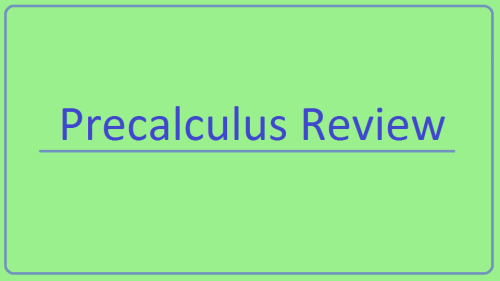
General Resources
Figure Out What You’re Missing
Tennessee Tech Placement Test
Berkeley Placement Test
To Learn Concepts
Videos/Playlists:
Khan Academy - videos and exercises
Khan Academy’s YouTube - videos
ProfRobBob - short filmed lectures
brightstorm - has problems, explanation, and transcript
Websites
TheMathPage - a list of topics and basic explanation, includes problems and step-by-step answers
Coolmath - a list of topics, colorful explanations, and examples
WolframMathWorld - topics, vocab, and quick summaries (probably more useful as a review resource/recap resource)
CK-12 - detailed curriculum, has practice and resources
Open Textbook Store - textbook, homework sets, teacher notes, lecture examples, sample quizzes and exams…
Free courses:
University of California, Irvine at Coursera
University of Texas, Austin at edx
Textbook PDFs
Precalculus by Carl stitz and Jeff Zeager
Precalculus by David H. Collingwood, K. david Prince, and Matthew M. Conroy
Other Resources:
A formula sheet
Practice Problems
Non-interactive:
University of California, Davis Resource - list of topics and example problems and answers
NYU - list of topics and example problems and answers, like lecture note format
Mathematics Vision Project - has a mix of algebra, geometry, and trig. These are the “workbooks” that my school uses.
Interactive
IXL - list of many topics and questions that increase in difficulty when you answer correctly.
List of Topics to Be Solid With Before Calculus
I took this list of topics from various internet sources and my own teacher. Resources to learn each of these are pretty easy to find. I haven’t taken Calculus yet (just have been freaking out about it), so if anyone has insight, please share!
Essential Alg/Precalc
*in italics are those my teacher stressed for my class in particular
find the equation of a line
trig (properties and values, unit circle, graphs, trig ratios (solve triangles using trig ratios & define), trig relations/identites)
different kinds of equations and graphing (polynomial, absolute value, exponential, polar, parametric, inequalities [esp those with absolute value], logs)
logs
limits
vectors
algebraic manipulation (factoring, completing the square, simplying expressions, solving equations)
–manipulate polynomials
formula manipulation
manipulation of abstract function expressions
function transformations (differences between y = f(x) + c and y = f(x+c) & the like, inverse functions)
using your calculator
analytical geometry
Memorize the following graphs visually - will help with derivatives (x^2, x^3, sqrt(x), 1/x, 1/(x^2), logx)




august 23, 2016 | 8:08 pm | 10/100
MIDTERMS ARE FINALLY OVER!!! 🤓 been studying for philosophy and biology the last two day! here is a mind map for philosophy and flashcards for biology 🌎☄💫 now i’m just hoping and praying i get good results back 😫
my masterlist of 'how to life’ tips
Cleaning & Tidying
Make your bed in the morning. It takes seconds, and it’s worth it.
Reset to zero each morning.
Use the UFYH 20/10 system for clearing your shit.
Get a reed diffuser and stick it on your windowsill.
Have a ‘drop-zone’ box where you dump anything and everything. At the beginning/end of the day, clear it out and put that shit away.
Roll your clothes, don’t fold them - or fold them vertically.
Automate your chores. Have a cleaning schedule and assign 15mins daily to do whatever cleaning tasks are set for that day. Set a timer and do it - once the timer is up, finish the task you’re on and leave it for the day.
Fold your clothes straight out of the tumble dryer (if you use one), whilst they’re still warm. This minimises creases and eliminates the need for ironing.
Clean your footwear regularly and you’ll feel like a champ.
Organisation & Productivity
Learn from Eisenhower’s Importance/Urgency matrix.
Try out the two-minute rule and the Pomodoro technique.
Use. A. Planner. (Or Google Calendar, if that’s more your thing.)
Try bullet journalling.
Keep a notebook/journal/commonplace book to dump your brain contents in on the regular.
Set morning alarms at two-minute intervals rather than five, and stick your alarm on the other side of the room. It’s brutal, but it works.
Set three main goals each day, with one of them being your #1 priority. Don’t overload your to-do list or you’ll hit overload paralysis and procrastinate.
If you’re in a slump, however, don’t be afraid to put things like “shower” on your to do list - that may be a big enough goal in itself, and that’s okay.
Have a physical inbox - a tray, a folder, whatever. If you get a piece of paper, stick it in there and sort through it at the end of the week.
Consider utilising the GTD System, or a variation of it.
Try timeboxing.
Have a morning routine, and guard that quiet time ferociously.
Save interesting-looking shit to instapaper. Have a set time where you read through the stuff you saved to instapaper and save the shit that you like from instapaper to evernote (or bookmark it properly).
During your working hours, put on your footwear, even if you’re sat on your bed. (Why?)
Have a folder for all your important documents and letters, organised by topic (e.g. medical, bank, university, work, identification). At the front of this folder, have a sheet of paper with all the key information written on it, such as your GP’s details, your passport details, driving licence details, bank account number, insurance number(s), and so on.
Try using StayFocusd and RescueTime (or similar apps/extensions). (I promise, you’ll find that you’re not as busy as you think you are.)
Schedule working time and down time alike, in the balance that works for you.
Money
Have. A. God. Damn. Budget.
Use a money tracker like toshl, mint, or splitwise. Enter all expenses asap! (You will forget, otherwise.)
Have a ‘money date’ each week, where you sort through your finances from the past seven days and then add it to a spreadsheet. This will help you identify your spending patterns and whether your budget is actually working or not.
Pack your own frickin’ lunch like a grown-up and stop buying so many takeaway coffees. Keep snacks in your bag.
Go to your bank and take out £100 in £1 coins (or w/e your currency is). That shit will come in useful for all kinds of things and you’ll never be short on change for the bus or the laundry.
Food & Cooking
Know how to cook the basics: a starch, a protein, a vegetable, and a sauce.
Simple, one-pot meals (“a grain, a green, and a bean”) are a godsend.
Dried porcini mushrooms make a fantastic stock to cook with.
Batch cook and freeze. Make your own ‘microwave meals’.
Buy dried goods to save money - rice and beans are a pittance. (Remember to soak dried beans first, though!)
Consider Meatless Mondays; it’s healthier, cheaper, and more environmentally friendly.
Learn which fruits and vegetables are cheapest at your store, and build a standard weekly menu around those. (Also remember that frozen vegetables are cheap and healthy.)
Learn seasoning combinations. Different seasoning, even with the exact same ingredients, can make a dish seem completely new.
Don’t buy shit for a one-off recipe, especially if you won’t use it all. If you really want to try out a recipe, see if a friend would be interested in making it with you, then pool for the expenses.
Make your own goddamned pasta sauce. Jamie Oliver has a decent recipe here, but the beauty of tomato sauce is that you can totally wing it and adapt the fuck out of it.
Misc
Have a stock email-writing format.
Want to start running, but find it boring? Try Zombies, Run!.
Keep a goddamn first aid kit and learn how to use it.
Know your OTC pain relief.
Update your CV regularly.
Keep a selection of stamps and standard envelopes for unexpected posting needs. (It happens more regularly than you would think!)
Some final words of advice:
Organisation is not a goal in itself, it is a tool. Don’t get caught up in the illusion of productivity and get distracted from the actual task at hand.
Routines and habits will help you. Trust in them.
You have the potential to be an organised and productive person, just as much as anybody else. It just takes practice.
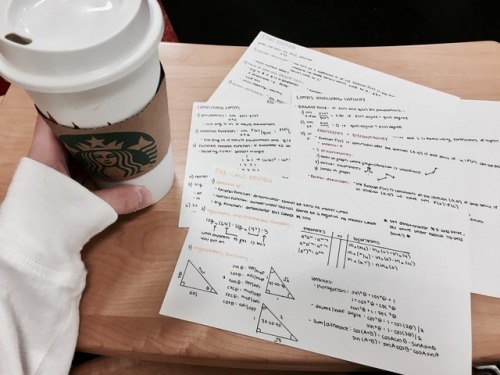
10.23 im barely holdin on right now, having some trouble finding hope and falling in love with the world again but i will be okay
ewwwwwwwwwwwwwwwwwwwwwwwwwwwwwwwwwwwwwwwwwww
writing adult emails is awful
its like
hi [name of person],
this formatting is making me uncomfortable but I have to tell you something / ask you something that is vital to my career as a student.
I re-read and edited that sentence for an hour, but you’ll probably just glance over it for half a second.
thanks!
- [name]
I kind of wish that the idea that you can just be was a little more mainstream.
Like, having drive and ambition is great. But it gets drilled in kids’ heads that there is some pressure to constantly be looking for the next move up, to be bigger than life. It wears you down to never be satisfied.
Not everyone is destined for greatness. It just doesn’t suit some people.
There’s nothing wrong with having a quiet life, making enough to get by, having a small apartment where you’re comfortable, and just living. You don’t have to constantly be looking to go onward and upwards. Sometimes the best thing you can do for yourself is to just be.

Read JY Yang’s “Waiting on a Bright Moon”, a story of rebellion among far-flung colonies united by song magic.
Xin is an ansible, using her song magic to connect the originworld of the Imperial Authority and its far-flung colonies— a role that is forced upon magically-gifted women “of a certain closeness”. When a dead body comes through her portal at a time of growing rebellion, Xin is drawn deep into a station-wide conspiracy along with Ouyang Suqing, one of the station’s mysterious, high-ranking starmages.

Lots and lots of econ notes. This class is making me reflect a lot on political policies and my own leanings…
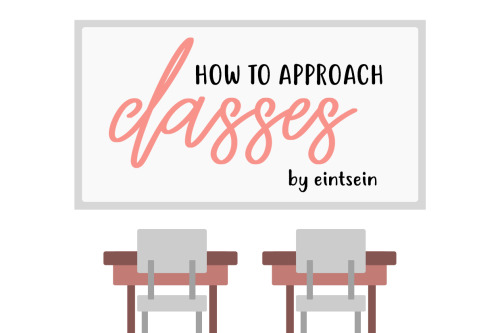
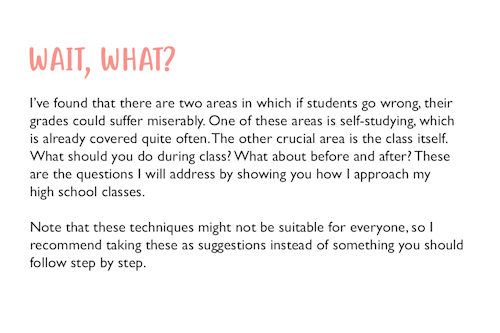
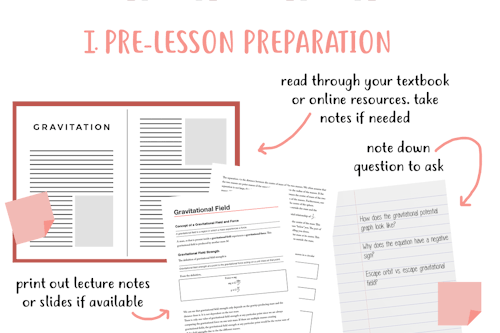
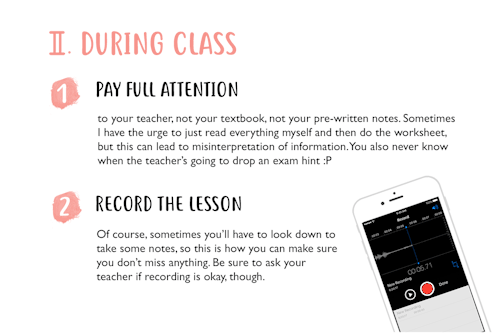
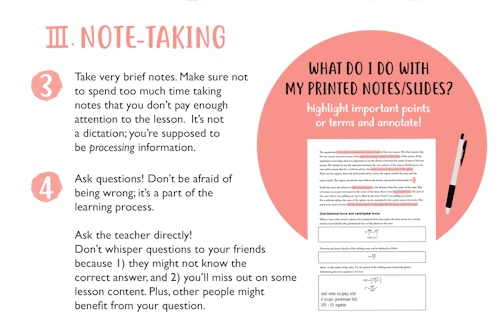
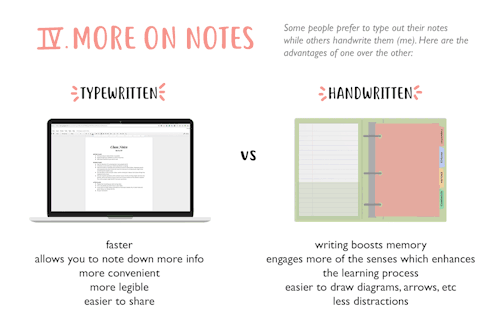
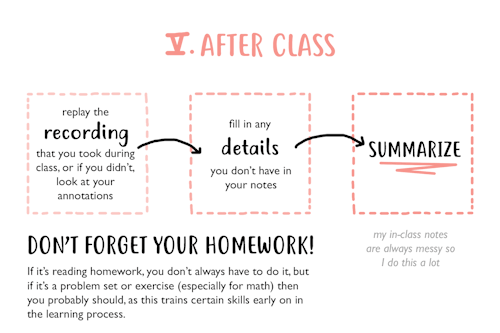
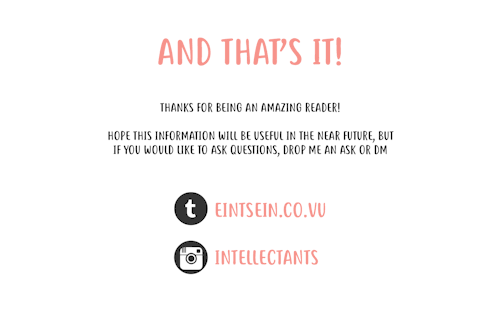
HOW TO APPROACH CLASSES A guide to getting the most out of your classes and lectures
By Eintsein
Design inspired by this post by @journalsanctuary

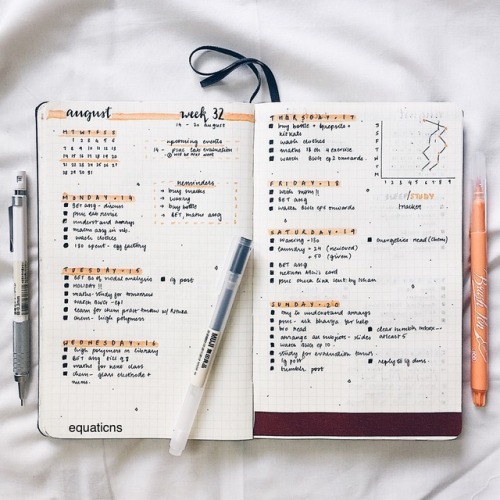
I really need to reduce my caffeine intake 😅
Taken from my studygram: @equaticnss ♡

· 2/1/2016 ·
Biology flashcards from this morning. Good way to start the year.
How is everyone’s day? I love studying the human heart, it’s the best topic in my syllabus. I can’t understand any other sciences though so adios, my inner Christina Yang.
It’s a beautiful day to save lives.
DEAR RESEARCHERS OF TUMBLR
You know what’s awesome? Research. You know what’s not awesome? Not being able to get access to research because it’s stuck behind a paywall and you don’t belong to an institution/your institution doesn’t subscribe to that particular journal.
FEAR NOT.
Here is a list of free, open access materials on a variety of subjects. Feel free to add if you like!
GO FORTH AND LEARN SHIT, MY FRIENDS.
Directory of Open Access Journals- A compendium of over 9000 journals from 133 countries, multilingual and multidisciplinary.
Directory of Open Access Books- Like the above, but for ebooks. Also multidisciplinary.
Ubiquity Press- Journals covering archaeology, comics scholarship, museum studies, psychology, history, international development, and more. Also publishes open access ebooks on a wide variety of subjects.
Europeana- Digital library about the history and culture of Europe.
Digital Public Library of America- American history, culture, economics, SO MUCH AMERICA.
Internet Archive- In addition to books, they have music and videos, too. Free! And legal! They also have the Wayback Machine, which lets you see webpages as they looked at a particular time.
College and Research Libraries- Library science and information studies. Because that’s what I do.
Library of Congress Digital Collections- American history and culture, historic newspapers, sound recordings, photographs, and a ton of other neat stuff.
LSE Digital Library- London history, women’s history.
Wiley Open Access- Science things! Neurology, medicine, chemistry, ecology, engineering, food science, biology, psychology, veterinary medicine.
SpringerOpen- Mainly STEM journals, looooong list.
Elsevier Open Access- Elsevier’s kind of the devil but you might as well take advantage of this. Mainly STEM, also a linguistics journal and a medical journal in Spanish.

hey!! as a high school senior in the middle of college apps, i figured i could give some tips on the process for my fellow classmates & any underclassmen trying to start early (pro tip: start as early as you can!) so yeah, here are my tips for teacher recs, the first post in my college apps guide series!
choosing your teachers:
choosing who should write your recommendation can be a stressful process, but it’s the first step! whoever you choose depends on a lot of factors, including: how well they know you personally, how well they know you academically, and how well they know what you’ve done & what you do. also, oftentimes colleges require teachers of specific subjects depending on your major, so keep that in mind too. it can be very beneficial to have a teacher who teaches in the field of your chosen major so they can give a perspective on your academic success in that subject.
generally colleges take two recommendations, so it’s important to make sure that your rec letters are a good blend of perspectives and that they are not going to be the same letter. two similar recs are not effective, and you may as well send in one. so when choosing your teachers, make sure that they can bring varying points of view to your letter of rec.
a teacher may know you well academically and personally, or know what you’ve done and who you are, so if possible, you want to get all three perspectives within your two recs, and it’s ok if one of them is repeated. however, the one thing you don’t want is a teacher whose class you didn’t do to great in, even if they know you well. i would personally say to completely rule out that kind of teacher, but if they know you 100% and have seen you grow and change, then i suppose that rec may be viable- but it’s still not the best idea.
requesting your recs:
this is a pretty formal process, so you don’t want to mess up too terribly. you’re essentially asking your teachers to tell a college why it should accept you, so you want to approach them very tactically.
unless you’re asking them over the summer, approach them in person. this establishes that you care enough about their rec that you can meet with them & reminds them of who you actually are so you’re more than just a name asking for a recommendation.
be nice & throw in the compliments (but not too many). you want to sound as genuine as possible, so lay it thick but not too thick. tell them you loved their class & why you loved their class.
and then mention that you’re applying to colleges this fall and would be honored if they could write a rec for you.
those are the basics. a lot of people also give gifts to their teachers, either when asking for a rec or sometimes after. this isn’t absolutely necessary, but it’s a nice gesture and makes them happy!
what to provide:
even if a teacher knows you well, it makes things a lot easier for the both of you if you put a majority of your info on paper. many teachers or schools provide forms for you to fill out, but if they don’t, here’s what you could give them:
a resume, with enough descriptions of positions you’ve held & things you’ve done for them to get the whole picture
a brag sheet, covering your activities, grades, plans for the future, obstacles you’ve overcome, what you’d like them to highlight, etc… basically put everything you want them to know about you.
whatever you provide them with, make sure it also has: some of your grades or gpa on it, the colleges you’re applying to, and your intended major (if you’re undecided then just let them know you’re undecided)
time!! time is so important. teachers have lives and other things to do, and you’re asking a huge favor when requesting a recommendation, so please keep time in mind, especially if you’re applying early somewhere! they should at least have 2-3 weeks to write your rec (at least!)
also remember an envelope with postage stamp and all that jazz if they’re mailing the rec letter in. and if you’re requesting a rec online, make sure you actually send in that request. even if you’ve asked them for a rec, that request is your responsibility.
other things to do:
check in with your teachers some time after you’ve asked them for a rec, especially if you’ve electronically requested one, to make sure everything’s reached them.
stay friendly with them, try to smile if you see them in the halls, just be a nice person in general. once again, they’re telling a college why it should take you. you want to make a continuously good impression!
++ a lot of these tips apply for counselor recs too! your counselor pretty much knows they’re writing a rec for you, but you definitely want to make that request (online or in person if that’s how it’s done) and check up with them + make sure you’re nice to them and they know you. they should be able to recognize your face & know some of what you’ve done around the school.
more masterposts!!
5 top math tips
stem studying
study methods
precalculus
algebra (I + II)
geometry
(ap) chemistry
ap world history
studyblr-ing
the everything book
the pomodoro method
how to use flashcards
how to use sticky notes
welcome to high school
tiny study spaces
what’s in a pencil case
i think there’s an important process to know for teacher recs & i hope i covered everything in enough detail! recs are a very important part of your application, so please don’t push them to the side! anyway, i hope this helps!! keep shining like the star you are and remember to be awesome today!!
- Aza

SYNESTHESIA // an instrumental mix to fill you up with wonder and paint your vision rich with color
i. a fuoco - ludovico einaudi | ii. arrival of the birds - the cinematic orchestra | iii. atonement - dario marianelli | iv. fragile n.4 - dustin o’halloran | v. mescaline - abel korzeniowski | vi. forrest gump suite - alan silvestri | vii. gymnopédie no.1 - erik satie | viii. sherlocked - david arnold & michael price | ix. tennessee - hans zimmer | x. main titles - rachel portman | xi. stars and butterflies - jean-yves thibaudet | xii. we move lightly - dustin o’halloran | xiii. the king’s speech - alexandre desplat | xiv. arabesque no.1 - claude debussy | xv. divenire - ludovico einaudi
{listen}


from a few days ago; stu(dying) for my abnormal psych final tomorrow! I’m gonna miss this class | ig: coffeesforstudiers




